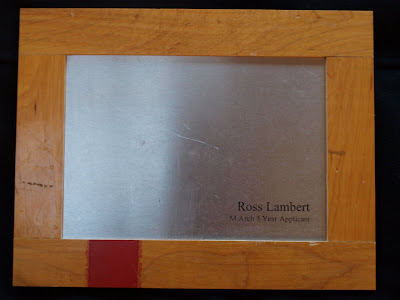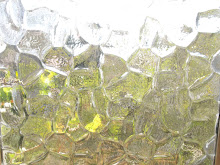There is this fiction in our society, this story that we relate over and over. It is so ingrained in how we conceive of our history and evolution that we don't even realize it's there. This is the idea of The Genius, The Individual. The Individual who enters the world fully-formed and destiny-bound out of the womb, rises above the rabble, and, with their particular, individual genius, forges the raw stuff of the world to suit their vision.
This is how we interpret our history and our present. It was Lincoln who freed the slaves, the Founders who made the Nation, Bill Gates who single-handedly shit out a software empire, and of course every ill of the country is currently Obama's fault, Bush's before him. I think this is a harmful fiction for several reasons. 1, I think it's inaccurate, for truth's own sake. 2, I think it discourages individuals from having agency and seeing themselves as capable. It sets the bar so high that you're either a genius or you're another member of the flock. The exclusion of little steps and group victories makes the question of participation an all-or-nothing decision, which leaves no way in. 3, it discourages group process, which is where ideas incubate, where the creative juices mix and whirl and spill out over the brim, and where the work is really done.
At the present time, our society seems so thoroughly gripped by this fiction of the individual. Why should you pay taxes for someone else's health care, education, unemployment? You either sink or swim. If you fail it's your own fault, never mind that the system is rigged against you. In politics, it only serves the powerful to keep the rest of us blaming ourselves, each other, becoming disparaged, apathetic, and dropping out of the game. In life, it makes us passive, consumers; it robs us of our creative potential. And this is a shameful thing for a culture that has always been characterized by innovation, experimentation and open-mindedness.
I posit that the individual does not exist. There is no such thing as you, just you, in a vacuum. We are all part of society. We are shaped by the forces around us. The lines our lives run are dictated by economic and social realities on a much larger scale than we can ever really understand. If we succeed, it is because we build upon the work of those who came before us, if we fail it is because of forces beyond our control. I don't mean to absolve individuals of all responsibility, for there is certainly a significant role to be played by any one person deciding how they want their life to be, and making it a reality. I have supreme faith in the power we have to shape our destinies when we are crystal clear about what we want and utterly committed to the task. But this is a very small percentage of the people alive today, and the rest of us go through life in some combination of doing what's easiest, what feels good, going along with what we see reflected in the world around us and so many other external influences. So why this idea that we can withdraw? That we can ever just be on our own, separate in some way from society, it's forces and it's obligations?
This has always been an individualist country, from the cowboys to the venture capitalists. It's what makes America great. We have religious freedom, freedom of speech, freedom of the press, freedom to bear arms and so many others. These freedom are constantly under attack and we stand at risk of losing them, but, comparatively, it's not so bad here. So it stands to reason that this idea, this thread, would work it's way through society and be extrapolated to it's extremes. I can understand the impulse and the logic, I simply find it narrow minded, superficially self-centered, short-sighted, and really just counterproductive.
* * *
I think strength comes from admitting weakness. It comes from exposing yourself to the light and to other people. It comes from drawing on their strengths, integrating them into yourself, your world view, absorbing their ideas, their skills, their knowledge and using these things in your own pursuits.
I believe there are people of genius in this world, but I don't believe that anything that has ever happened to move society has been the work of an individual. We live within a system, a structure, whatever it's rules, norms, functions, it imposes itself upon us. The option to withdraw is a false choice. To withdraw from humanity is impossible, even the loner who lives in the wilderness beyond the reach of culture takes with them ideas and objects formed by this culture, their very way of thinking has been formed by society, if only in opposition - let alone the citizen who doesn't vote, doesn't follow the developments of the culture, and complains only when it finally directly affects them in some way, a speeding ticket, a tax increase. This interconnectedness is the reality - why fight it? Why not use it?
When I work on something that requires knowledge or skills I don't have (which happens constantly), I proposition everyone I can think of who might have any idea of a solution or even a lead. I go through the phone book (Well, I use the internet. No one really uses the phone book anymore, do they?) and call businesses to ask them questions. It works. They can't just hang up on you. And I find that most people are extremely receptive to someone humbly seeking out their opinion and expertise. Many of these conversations begin something like this: "I have this thing I want to do and I have no idea how to do it. I thought you might be able to suggest some ideas for where to start." I don't ask for too much, I'm humble, and I'm sincerely grateful. It works.
This is strength, in my opinion. Not the strength of the genius returning from the desert with an idea that will transform society, but of an individual as a sort of conduit, a filter, a manager of the skills and abilities and knowledge of others. When you see yourself clearly, your strengths and your weaknesses, and accept them, you don't feel a need to be something you're not, and you stand a much better chance of achieving what you set out to do. And what's better: you might even learn something in the process; and so this is also growth, which is strength.
What I want to know is, Where is this story in our culture? The story of success of the group? Why is this so absent from our self-conception, from our dreams, our myths, our politics and our arts? Is it too complicated to explain? To fit into a pithy title or sound bit? Is our attention spam too short to hear it out? Our egos too large? It's a shame that we put so much energy into trying to be The Genius, or beating ourselves up over failing such an impossible standard. It seems to me that we could accomplish so much and use our abilities so much more efficiently if we just thought differently about what strength is.





















